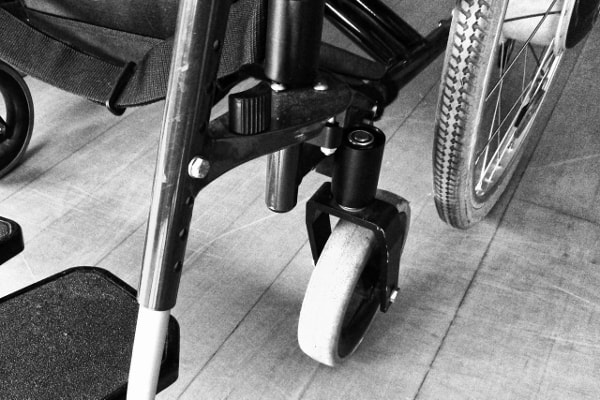Limited movement As mentioned above: some of you might simply not have the strength to lift things you placed somewhere ages ago, thereby leaving you with a situation where you simply are in no position to take care of the clutter. A classic example of this is the ever-dramatic attic decluttering! If you have lived in your home for 40-odd years and you have shifted things into your storage spaces when you were much younger, a huge cupboard might not have posed a problem to lift back then. But now that you are in your seventies, things are decidedly more difficult to shift. And that is without even taking into account navigating that rickety ladder leading up to the attic in the first place. More specific disabilities that lead to limited mobility (wheelchair, crutches, obesity, etc.) don’t help things along either, and they bring a number of additional issues into the mix. Being limited in the places you can reach physically will drastically reduce the options to keep things free of clutter: no longer will there be an option to store things on top of cupboards or on shelves near the ground, and many spots in your home will be inaccessible, which means that all you need to use will have to be stored in a narrow range of accessible areas. Those are usually countertops, anything between hip height to near head height, and very often out in the open for ease of access. That is probably the best recipe for clutter build-up if ever I’ve seen one. At the very least you’ll be able to register clutter and act on it accordingly by limiting what you own and use and finding solutions that work to some degree. If you are further limited – e.g. you are confined to a wheelchair or similar, not only is there a serious movement impairment, but being in a particular position also limits what you can actually see! If you cannot see things, how will you ever become aware that something needs taking care of? Limited vision How about visual limitations? If you have bad eyesight, taking care of clutter will become much more difficult than if you can clearly see it in the first place. Even if you are aware that clutter is accumulating, if you cannot see it properly, how will you realistically be able to make sure it’s properly taken care of? Limited eyesight makes it hard – if not even impossible – to even register that clutter is accumulating in the first place! I have written at length in previous posts about the fact that our subconscious starts blanking things out from our vision as soon as we get used to them. It’s already hard enough to overcome this and get yourself to a place where these things start registering again. Just imagine a situation where even your subconscious is no longer able to become aware of the clutter, simply because it has turned virtually invisible! The extreme case here is - obviously - complete blindness. Not being able to see at all will make taking care of clutter all the more difficult. However, there might be reason to assume that a blind person would be much more attuned to placing things in their home spot, simply to make it possible for them to retrieve any object they need. That doesn't mean that being blind offers any advantage in general, or course. Other senses Now let’s visit a place that might be uncomfortable to some of you: the realms of smell. Even if you are not aware of it, smell plays a huge role in your life and physiologically has served humanity from early on to determine if things have gone bad, something is unhealthy or outright dangerous. I’m not saying that homes in general smell dangerous or cluttered, but there are certain smells associated with clutter: think about old books (that slightly musty library smell), or remnants of grease in the kitchen or mouldy fruit, and similar smells. Our sense of smell serves as an early warning system, until it is gone. Remember the last time you had a clogged nose or a throat infection? Taste and smell are closely linked and eating any foods would have been a strange experience because the taste was off. Not being able to smell or taste will interrupt your early warning system for clutter as well. Of course, we do not rely on these senses as much as on our eyesight, but it has been proven that they are powerful enough when stimulated to replace hearing or eyesight to some degree, so don’t underestimate them. Lastly: it’s hard to imagine a scenario where a hearing disability makes any difference in terms of clutter apart from maybe not noticing those piles of paper falling and blocking your emergency exit without you knowing it. The same goes for the sense of touch, by the way. I’d be interested to hear if you have an insight into these aspects of physical disability. All of the above does not mean that anyone with a disability will intrinsically be more prone to clutter than anyone else. It only means to point out that physical disabilities can create more obstacles that need to be overcome, both for recognition of clutter as well as taking care of it. If you have enjoyed reading this, you may find these other articles interesting: Comments are closed.
|
Ask the ClutterMeisterIdeas to help clear away the mess in your homes and in your minds.
Feel free to share any of my posts, but please put in a backlink to the original blog post. Thank you. The author
Hi, my name is Tilo Flache. My mission: help clients declutter mind and space.
This blog contains pointers for your journey towards a happier living experience. Archives
November 2023
|




 RSS Feed
RSS Feed




